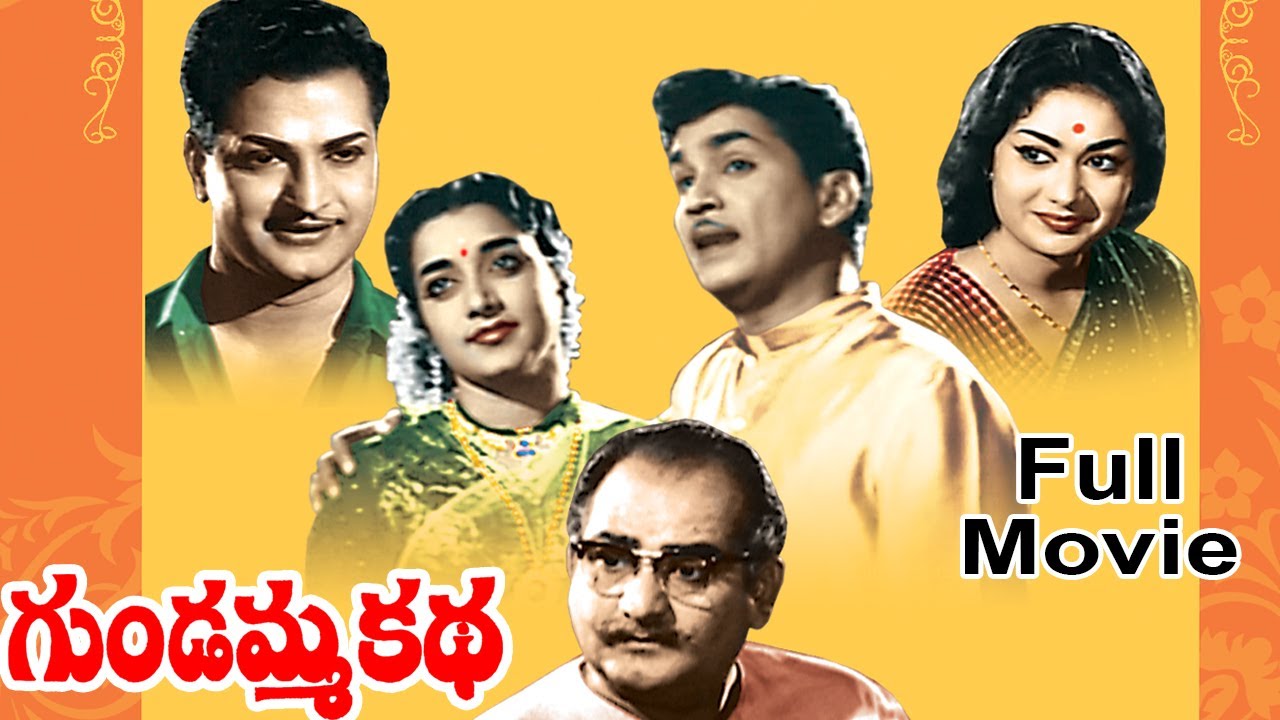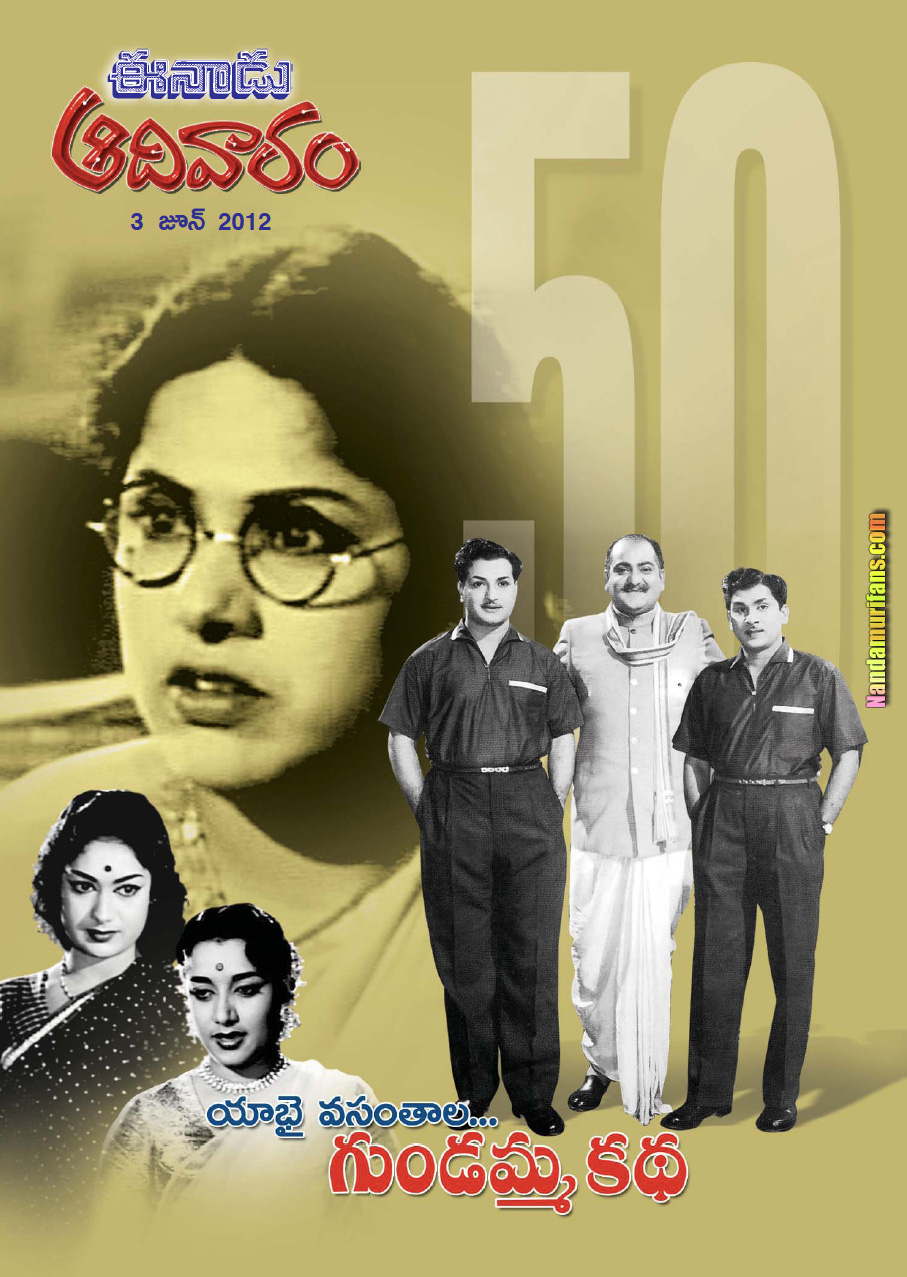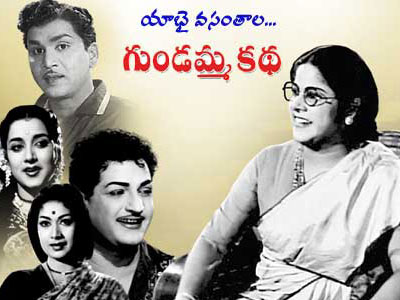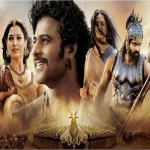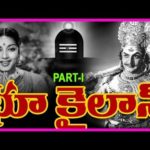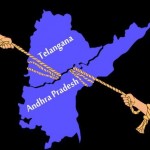If there were ever a Telugu movie on strong women, it would be 1962’s Gundamma Katha.
It is very much a character driven story with contrasting types of female strength. The analogous English title would be “The Taming of the Shrew”.
And yet, in a break from the famous Shakespearean classic, the title refers not to either of the youthful heroines, played by Savitri and Jamuna respectively, but rather, the role played that grande dame of Andhra Cinema, Suryakantham.
Suryakantham gaaru is a legend in her own right among Telugus to this day having been a dancer, heroine, and character actress successively. It is with this role, however, that she truly made her mark on the psyche of the cinema loving Andhras. Despite a star-studded cast of industry legends, she managed to steal the show.
Story
A modern day blend of Cinderella and Taming of the Shrew, Gundamma Katha is set in post-Independence Andhra. The title character, Gundamma, is a wealthy widow with a reputation for rhetorically (and even physically) thrashing anyone who dares get in her way. Indeed, she is the living embodiment of how money doesn’t buy class or culture.
She has a daughter, Saroja, played by Jamuna (who in stark departure from her earlier roles as an ingenue, plays a more mature, albeit spoiled, character here). Her treatment of her step-daughter, Lakshmi (played by Savitri) is less than stellar (and indeed reminiscent of the step-mother from Cinderella). She not only treats her like a servant, but despite her zamindari background, decides to marry Lakshmi off to one as well. Savitri also plays against type and is seen as a subdued and suffering step-daughter, resigned to her fate. Unlike the other members of her immediate family, she remains very cultured and committed to her duties. Nevertheless, her prince charming soon arrives to bring her out of her shell.
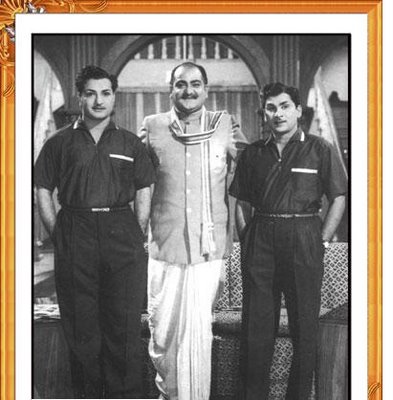
The stage is now set for another zamindari family, of all men, to sweep into the lives of these ladies and sweep them off their feet. The patriarch, played by a very dignified S.V.Ranga Rao, is looking to marry off his two sons. NTR features as the elder son and ANR the younger. The two operate as dynamic duo of sorts. Their father is looking for suitable matches, and fondly remembers his departed friend, who was the husband of the infamously incorrigible Gundamma. With a stout heart he visits the household, only to be disappointed in the upbringing of Gundamma’s daughter and the lack of samskaram in that home.
He returns home resolving to do right by his late mitra and the long-suffering Lakshmi. N.T. Rama Rao’s character, Anji, and Nageshwara Rao’s, Raja, then hatch a plot to win the hearts of the two ladies while bringing their matriarch onto the right path.
Supporting cast includes the luminescent L. Vijayalakshmi, truly a screen presence that was all too fleeting in the industry. She plays Padma, the love interest of Gundamma’s only son, Prabhakar (played by Haranath). Padma’s aunt, however, serves as an exquisite foil to Suryakantham’s character, and the antics that ensue are truly a delight. Gundamma’s brother also provides side entertainment, both through his comedic plotting and his criminal son, who plays a part in this action comedy’s crescendo.
Production
Produced by the prolific B. Nagi Reddy ( of Maya Bazaar fame), Gundamma Katha was written by Chakrapani and directed by Kamalakara, Kameshwara Rao . While the sets are not lavish, they are nevertheless classy and a emblematic of the times. The plot in a nutshell is about how post-feudal aristocrats with a flair for the modern desire to preserve a cultured family life, and seek out suitable mates in the process. In fact, the transformations that occur over the course of the story provide for an exegesis on the value of values and their centrality to a happy home life. The material world of modernity and its ephemeral wealth, takes second billing to sincere living and sincere relationships. The songs and story both serve to provide a vision of balancing the exigencies of modernity with the excellence of culture.
While the plot is well-planned and executed, the most appreciable aspect is the fact that all these actors are in the prime of their powers. Although NTR’s performance is a bit overwrought here and there, he nonetheless manages to win our appreciation for doting on his dearest love. Men of this era may want to take note of how he looks after her.
ANR superbly plays his role, and is particularly impressive as a drunk. Indeed, the cinema as a whole is a meditation on modernity and how individuals, man or woman, old or young, must consider the costs of individual selfishness on society at large.
The one area that was lacking, however, was choreography. Though it did not fall to Bhookailas depths in the dance department, the prodigious natya talents of the captivating L.Vijayalakshmi were wasted. Indeed, it was as though a primary school girl were commissioned to choreograph an eminently staged and supported line of dancing talent. Despite the juvenile and girlish nature of the natya, it is not a trial for the eyes, and the film remains at once interesting and engaging.
Above all, it is the clash of the titans in the form of Gundamma vs Durgamma that serves as the comedic engine. As we say in Telugu, Vajram nee Vajram thoney koyyalee, these two diamond hard personalities, with their mutual love of diamonds, provide the grist for the mill of this movie, and the final transformations. But why express with words when you can see for yourself?!
Gundamma vs Durgamma
Irrespective of the original quiet nature of her character, Savitri is practically enjoying this scene, and the crass cat-fight that ensues. Indeed, we see how her character, Lakshmi, has become an assertive (rather than a passive or aggressive) woman, who remains cultured, but capable of defending herself and others. Ironically, Suryakantham gaaru is said to have been playing against her actual personality, being a very humble and dignified lady off screen. Despite her storied career, she was sweet-natured, like the songs in this movie.
Songs
Without a doubt the standout song in the cinema is Nidra Lechindi Mahila Lokam. An ode to modern womanhood, it celebrates the awakening of the post-Independence Indian woman, and how she contributes not only at home but in the office and even in parliament. Anji celebrates the shy and ever-dutiful Lakshmi here.
Yet another notable gaana is Prema Yatralaku. While I personally could have done without the ululations, it otherwise remains a catchy gem.
Apropos of this aalu-driven movie, it is the aalus (wives) who do the serenading here. Both Lakshmi (Savitri) and Saroja (Jamuna) showcase their love for their husbands. Here…
And here…
Ghantasala‘s music production was, therefore, par for the course, with pleasant playback performances by the man himself along with S.Janaki and Leela P.
This classic film remains a crowd favourite among Telugus to this day, so much so that rumours still abound of a remake. Not only has the grapevine suggested NTR Jr. and Naga Chaitanya to reprise their respective Grandfathers’ parts, but the grande dame of today’s Telugu Cinema, Sridevi herself, in Suryakantham gaaru’s iconic role.
Whether or not this materializes, it would be a great way to kick off sorely needed remakes of classic films to reinvigorate an industry plagued by formulaic drivel. As such, GK is yet another must-see movie for all ages. Comedy, song, characters, and character, it is a movie of the times. Above all, it is the message of the movie that is timeless.
At a time when the role of women in society and the nature of pure individualism is a matter of great discussion, this cinema provides insight. If Missamma gives us a sketch of the strong Telugu woman, it is Gundamma that provides the full tapestry, with Savitri’s character shining in full brilliance on both occasions. As the movie edifies us, it is not being a selfish shrew that makes a strong woman, but her integrity, confidence in beliefs and abilities, and above all, her culture, which not only runs the house, but rules the destiny of nations.
Cast
Suryakantham – Gundamma
Nandamuri, Taraka Rama Rao – Anji
Akkineni, Nageshwara Rao – Raja
Savitri – Lakshmi
Jamuna – Saroja
S.V. Ranga Rao – Ramabhadraiah
Haranath – Prabhakar
Ramana Reddy – Kanchu Gantaiah
L. Vijayalakshmi – Padma
Rajanala, Kaleswara Rao – Bhupathi
Chhaya Devi – Durgamma
Hemalatha – Garataiah’s wife
Mikkilineni – Zamindar
Allu Ramalingaiah – Iyer (hotel owner)
Language:
Telugu
Release Date:
7 June 1962
Runtime:
166 min
Color:
Black and White
Director
Kamalakara Kameshwara Rao
Writer
Chakrapani – story
Narasa Raju D.V. – dialogue
Pingali Nagendra Rao – screen adaptation
Producer
Chakrapani – producer
B. Nagi Reddy – producer (as Nagi Reddy)
Music
Ghantasala Venkateswara Rao
S. Janaki – playback singer
Leela P. – playback singer
Ghantasala Venkateswara Rao – playback singer
P. Susheela – playback singer
Cinematography
Marcus Bartley
Art Direction
Kaladhar Gokhale
C. Kuppuswami Naidu – Settings
R.Jayarama Reddy – Paintings
Choreographer
Pasumarthi, Krishnamurthy
References:
- http://www.imdb.com/title/tt0262455/?ref_=fn_al_tt_1
- http://www.myfirstshow.com/news/view/11898/Sridevi-in-Gundamma-Katha.html
- www.deccanchronicle.com/141212/entertainment-tollywood/article/another-multi-starrer-cards
